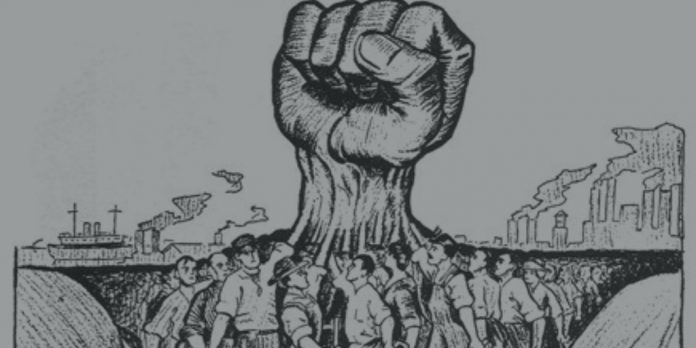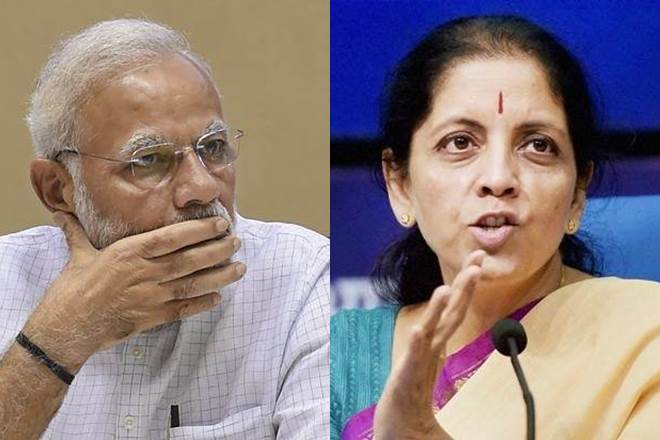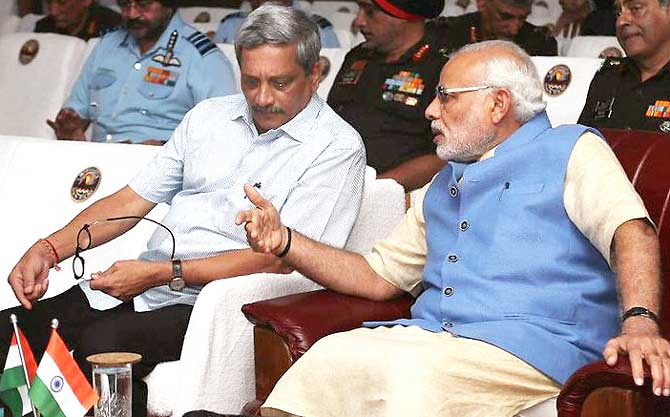[splco_heading size=”15″ align=”left” margin=”30″]Ten of the dozen central trade unions on Friday announced nationwide protests on May 22 against the labour law changes. In the national capital, the trade union leaders will gather at the Gandhi Samadhi at Rajghat to observe a day-long fast.[/splco_heading]
The Rashtriya Swayamsevak Sangh (RSS) affiliated Bharatiya Mazdoor Sangh is not part of these protests, but its workers and sectoral outfits it is learnt will move against and set to join the agitation that day, sources in these trade unions said.
The BMS has announced separate three phase protests against labour law changes from May 20 to 31.
In a statement issued Friday, the joint platform said that the Centre is “taking advantage” of the prolonged lockdown “in a most dubious manner” to abrogate labour rights of workers.
The statement accused the Centre of adopting the “strategy” of “letting loose their pliant state governments to take such anti-worker and anti-people autocratic measures”.
“The advisories to this effect are being sent to the state governments from the union ministry of labour and employment,” the trade unions said.
It said the Uttar Pradesh government has brought a “draconian” ordinance, the Uttar Pradesh temporary exemption for certain labour laws ordinance 2020, under the guise of facilitating economic activities.
With one stroke, the BJP led UP government has made 38 laws defunct for 1000 days (almost three years), including Trade Union Act, Industrial Disputes Act, Act on Occupational Safety and Health, Contract Labour Act, Interstate Migrant Labour Act, Equal Remuneration Act and Maternity Benefit Act.
It said the BJP led Madhya Pradesh Government has brought drastic changes in the Factories Act, Contract Act and Industrial Dispute Act.
This will empower employers to hire and fire the labour at their will, right to dispute and grievance redressal will be banned and contractors will not be required to obtain license for supplying labour up to 49 persons and hence will function without any regulation and control.
Other fallouts include inspection will be virtually withdrawn and the entire enforcement machinery put under freeze, this will make “absolutely meaningless” basic rights of workers on wages, compensation and safety.
The Shop and Establishment Act is amended to let the shops function from 6 am to midnight, that is 18 hours at a go, by the MP government.
It said the BJP led Gujarat government has increased working hours from 8 to 12 hours and could go the UP government way to suspend several laws for 1200 days.
The BJP led governments of Assam and Tripura and several others have been actively preparing to take the same route, it said.
The joint forum said these “anti-worker” steps come in the wake of eight state governments (Gujarat, Himachal Pradesh, Haryana, Odisha, Maharashtra, Rajasthan, Bihar and Punjab) have increased the daily working hours from eight hours to 12 hours through executive order in violation of the Factories Act, taking advantage of the lockdown situation.
“These draconian measures are not only to facilitate more brutal and cruel exploitation of workers without their rights for collective bargaining, dispute over proper wages, safety at work place and guarantee of social security but also to throw them in to conditions of slavery, in the interests of more profiteering despite continuing economic slowdown,” the trade unions said.
[splco_spacer size=”30″]

[splco_spacer size=”30″]
The joint forum said “women and vulnerable sections will be more exploited in terms of forced labour.”
It said this will effectively mean workers are to be used as bonded labour without any rights for sheer exploitation without any guarantee of wages, safety and healthcare, social security and above all human dignity.
“Indian working class is sought to be pushed back into British era,” the statement said.
The trade unions demands include immediate relief to stranded workers for safe reaching to their homes, food to be made available to all, universal coverage of ration distribution, ensure wages to all during the lock down period,
cash transfer to all unorganized labour force (registered or unregistered or self-employed), withdraw DA freeze to central government/central public sector enterprises employees.
The central trade unions have also decided to send joint representation to the ILO on the violations being committed by the Indian government on its international commitments to labour standards and human rights.









